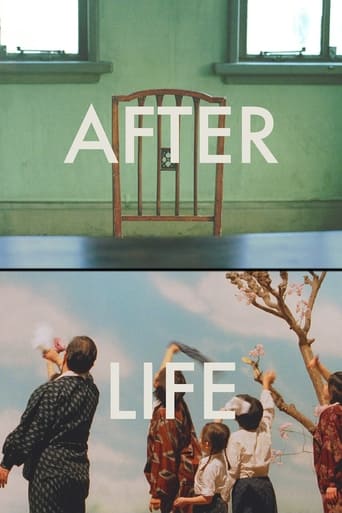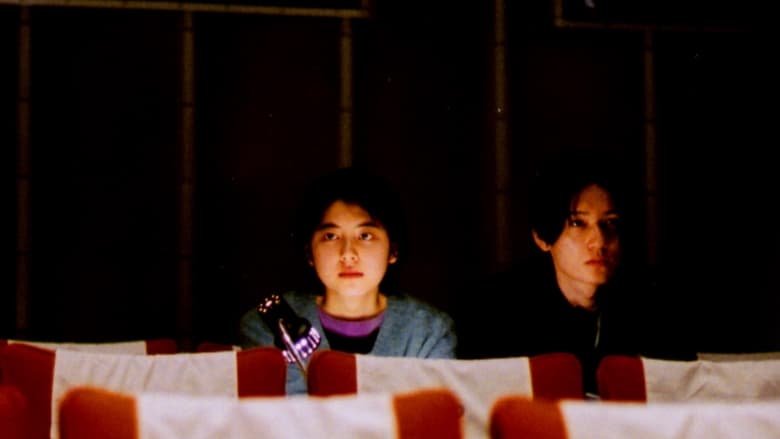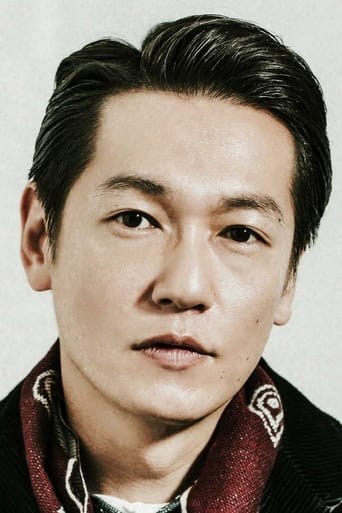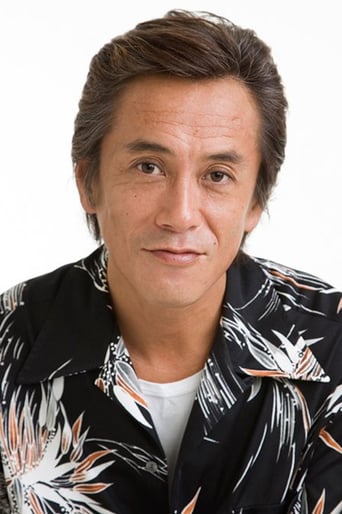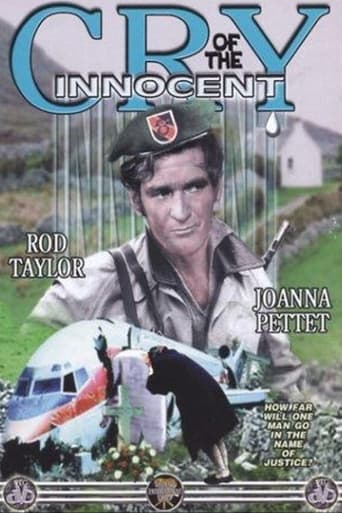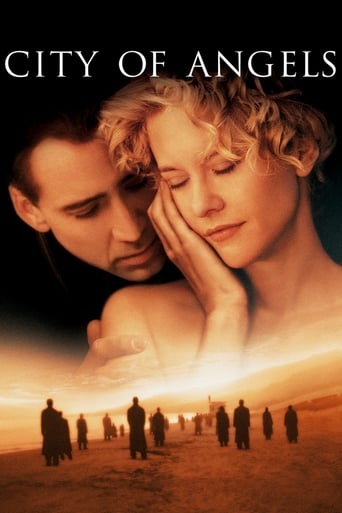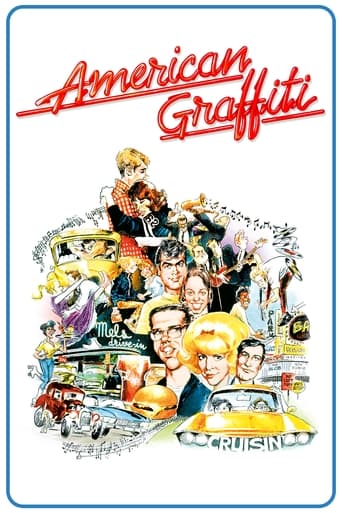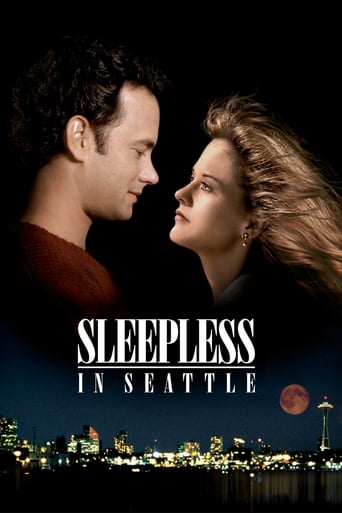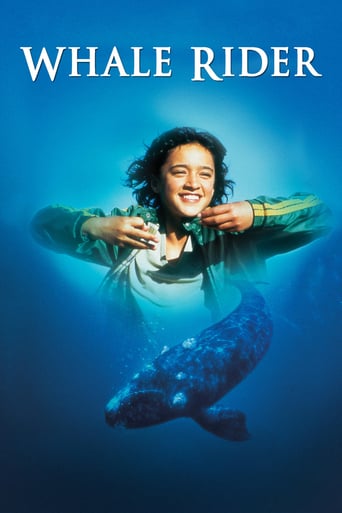After Life (1999)
On a cold Monday morning, a group of counselors clock in at an old-fashioned social services office. Their task is to interview the recently deceased, record their personal details, then, over the course of the week, assist them in choosing a single memory to keep for eternity.
Watch Trailer
Free Trial Channels
Cast


Similar titles
Reviews
Most undeservingly overhyped movie of all time??
Let's be realistic.
Excellent, a Must See
Crappy film
This review is dedicated to Chris Marker who passed away earlier today, the man who showed so little of himself because he was busy showing so much of everything. RIP.Good film, a good life in general, is not just about a view of the ocean, that may be beautiful one day but stormy the next. Good film is reflections on the waters of the moon that adjusts the tides. This is a recurrent insight of Zen among other things, and you can't be a Japanese filmmaker and not respond to the conundrum posed by Zen, even if it means outright rejection (as many Japanese New Wave-ers did). So it is not just a view, life isn't, it is both reflection and mechanisms that control the view, and these mechanisms entail motion and flow, and that flow is only near the surface the everyday narrative of life. The conundrum? You have to express complicated in-sight with a simple view.This guy, Koreeda, is still in his early steps here, but wants the adventure. In Maborosi, he chiseled a bit at the transcendent flow, even if it came across as a simple homage to Ozu it was good work. This time he challenges himself with layered narrative.He's still in his early steps means, in our case, that the mechanisms are entirely movielike, usually they are. The premise is that a group of people die and come to a house where each one will have to settle on a single memory to carry with them to eternity, this is the part that references old Hollywood fantasy (A Matter of Life and Death, the Capra Christmas staple also referenced in the title).The French touch (most notably Resnais and Marker): each memory is going to be made into a film, and films are going to be screened for the audience in a way that they grant transcendence. Each film poses a challenge to the crew, so the filmmakers have to seriously puzzle: how to film a flight on ground level, the sound of darkness, or the simplest thing, the feel of a summer breeze. Another problem is that others won't or can't even choose their film.In new Hollywood hands, say Jonze's, this would be done with an abundance of quirks and forced cleverness. One or the other from the usual group of selfaware actors - Julianne Moore, Seymour Hoffman, Malkovich - would be likely brought around to be the center of multiple overlapping vision. We'd get a big, complex synecdoche of the various threads, that is in line with the Western understanding of life as a complicated narrative.But, this is Japanese and derives all its power from subtle flow in the view: one aspect of this, is that we never see the actual transcendent films except a few glimpses, and only glimpses of them being put together, usually involving camera set-up and rehearsals from memory. The action often takes place in some blurred foreground. See, it was never about the actual films as vaguely artistic tokens. It was about sculpting a feel that guides you back to the light, and that is left entirely in our sphere of having discovered our cherished moment, and rehearsed that moment as the film provides the framework of cinematic space around it. It is pure Zen: cultivating the air you breathe.The other aspect is that we have actual people reminiscing. Oh, some of it was staged, some of it real, but you can't know most of the time and there's no point to that. It matters that all of it impresses as a seamless flow of graceful reminiscence.I'd have liked less obviously scripted romance and more of these people and filming the air, which is one of the coveted memories anyway, but Koreeda probably needed a safe anchor he could control using ordinary - dramatic - means. That should be his next adventure.I recently discovered a wonderful Russian film a bit like this, that one a documentary, this one ostensibly a drama, but the boundaries are slippery, about aged ballet dancers in their 80's and 90's conducting between them a wonderful ballet of remembrance. It felt graceful because the people telling their story were, and each breath from that story infused the cinematic air, and so it is here, except in a much more quietly ordinary way, since the people are ordinary.Chris Marker would have liked both, I like to think. He did his own film about a Russian filmmaker reminiscing on a journey of staged dreams and fleeting memories. It's called The Last Bolshevik, the Russian documentary is Ballets Russes. You should look them up.And so it comes full circle.
Alright, I seem to be more excited about the reviews than the actual movie. So many people seem to have gotten so much out of this film and that is wonderful. Often our perspective is a reflection on where we are in life. I initially went online to understand what the was the point of the movie because I was confused. It was the highest rated film that I had watched in a while. Unfortunately, I am not one to give up on things, but I was in pain for it to end. I had hoped it would have some redeeming quality.The premise of the film is certainly a novel thought as far as movie plots go. I have often found foreign film plots to have more substance and reality than many of the American films. The plot reminds me of someone who is going to have Alzheimer's except they can retain one memory. To me, Alzheimer's is s very disturbing form of existence. Basically our hereafter is a loss of memory with only one thought in tack. The other reviews that I read tend to avoid this literal interpretation and speak of increasing our own perspective of life and I can see that. I thank them for sharing their interpretation. Some of the things we attach ourselves are trivial in scheme of things and this is a great awareness, I just didn't get that from the movie. I guess, I have more of a question about our perspectives than the movie. How is it that we can watch the same movie and range from excitement to sheer boredom. I do love the diversity of this world, so for those who get indignant when someone doesn't agree, just let it go.I suppose I was looking for meaning in the movie and only found a greater meaning in the reviews. I did get a kick out of some of the poor reviews because those folks had a great sense of humor. Let's agree to disagree. Just don't invite me over for another viewing.
What is the happiest moment of your life? If you had to pick one moment, one memory to keep with you and the rest were going to be erased what would it be? This is the central question of Afterlife a film about life, memory, happiness, movie making, and only in tangent, death. A group of dead people arrive at a dilapidated building where they are told to select a single memory that they will dwell in for all eternity. Heaven as it turns out is only a memory. The film is mostly these people talking directly into the camera documentary style reflecting on what was most important to them.I recently told a friend about this movie, who told me it sounded "corny", and if the film had only been about these people I, might agree. I told my friend that I liked the film because while watching it I reflected on my entire life, and what happiness had meant to me during it. I was almost shocked and a little saddened by how quickly I came to realize what my moment was, like the movie as a whole it leaves a bittersweet taste. My friend told me they didn't think about their life that way, and that it would be too depressing to do so. I told her that someone in the movie says that too, and what made the movie as a whole so good and not just a clever concept was how honest it was about the complications between notions of a meaningful life, nostalgia, and personal happiness.The dead have a half a week to choose which memory they want and the rest of the week is spent filming the memories in a sound studio. The screening at the end of the week is to be their moment of "ascension". Though silent at first the "counselors" shooting these memory-movies are not separate from the process, they too are dead. Takashi and his trainee Shiori we see handle most of the cases.Afterlife despite its title is not a film about death, but about memory and self-reflection. Two characters become problematic early on, one an old man who says he cant remember his life clearly enough to choose a specific moment, the other a young man who refuses to chose a moment, insisting it would be "avoiding responsibility for his life" and a surrender to empty nostalgia. Takashi becomes interested in the old man's case(for personal reasons we discover later), and has the man's life sent to him on videotape so that he may observe and report, in a quieter variation on Albert Brook's "Defending Your Life" (a conceptual cousin to Afterlife).Afterlife is about producing films that capture only a single moment and that only have meaning to single person; films that will only be screened once, but will be remembered literally forever. They are so personal as to be inconsequential to anyone but their intended viewer, but I couldn't think of a more meaningful type of film to make both for an audience and their creators. I think this is why many people watch films, at times to identify and at others to connect with what is unidentifiable.Russian silent film director Aleksandr Medvedkin used to travel the USSR on a train stopping at random villages and asking the people what their problems, issues, and concerns were and then asked for their assistance in making a film about just that. Doing this Medvedkin wanted to give cinema to the masses. The world of Afterlife likewise gives cinema to the individual.There are sprinklings of melodrama in the film towards the end, but they allow the characters to actually reach important conclusions that the film wouldn't have been able to connect together otherwise. Even if you can't remember your own moment, isn't it possible that you are an extra or a main character in someone else's, and nothing as dramatic as some old flame pining over you, but maybe a moment spent with a friend or a family member. Maybe your parent's happiest moment was when you were born. It's only from an imaginary position like an Afterlife that we have the distance to reflect on such grand feelings intimately and sincerely.Since were not dead, this question can be written off as sophomoric or corny, our best days may in fact still be ahead. But I wonder if without some prior sense of what is truly beautiful, meaningful, and warm fuzziness incarnate whether we can know true bliss when we finally see it. This is assuming it's something you can even know when you see it, and not something that only occurs with memory. I was once told in a Sunday Sermon, happiness is predicated on happenings and events, but joy was something internal that had little relation to the outside world. Personally I think real happiness is created when memories generate joy that later events cannot soil or touch.The only objections I could reasonably see are often spoken by the characters themselves, particularly the young man, who thinks the entire system is flawed; what do they do if a baby dies for instance? My own moment (and no I will not tell you nor anyone else) was actually quite "corny", in fact it was the first time in my life I realized why a certain kind of sentimentality existed. This movie is sentimental for sure, but it's definitely sincere. If we get lucky in this universe and there is an Afterlife, we would all be very fortunate to find ourselves in a movie theaters like these with kind hearted counselors to help us grieve for and accept our lives, and if there isn't well at least there's still movies like Afterlife; things worth seeing, things worth talking about, and things worth sharing with each other.
The premise of this story is that upon your death, you stay for one week at a nondescript establishment where sympathetic councillors help you to select ONE outstanding memory from your life. Whatever you chose, (if you decide to chose) will be made into a short film, and you will live within that life-defining memory for all eternity. Many of the after-lifers are non-actors and it is their memories that give an emotional weight to this beautifully realised piece; the elderly lady whose wartime memory of dancing for her brother in her new red dress is beautifully poignant; the man who discovers that he has wasted his life by devotion to a job that he hates, and the teenager who cannot chose between a trip to Disneyland and the smell of her mother. Every once in a while, a movie come along that astonishes and delights, and it is for wonderful movies like this that I cheerfully wade through hundreds of hours of mediocre, derivative dross. This is a life-affirming and deeply humanistic meditation on what it means to live a good life. I absolutely recommend this beautiful, uplifting movie.

